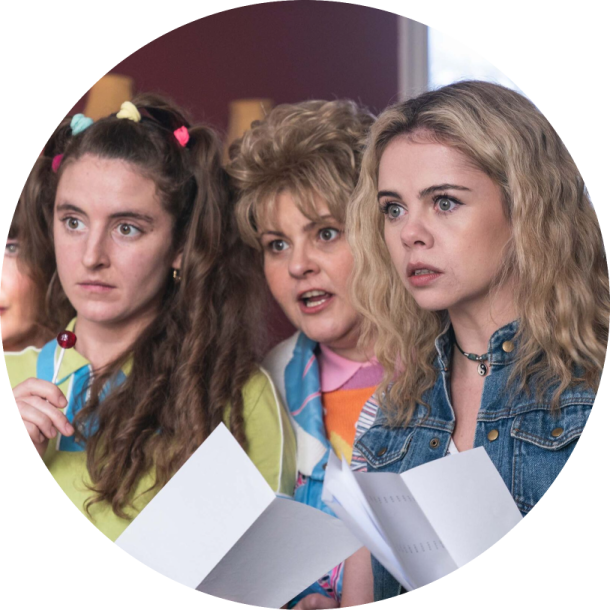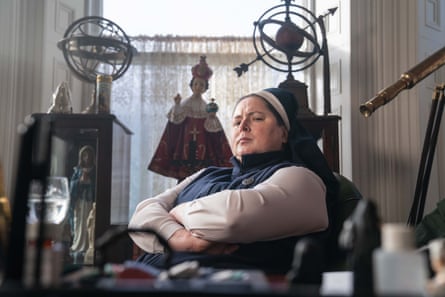Derry Girls

I love this show too. It's sense of place is spot on, the soundtrack is perfect and the characters are all classic. Erin's dad for instance, just gets more hilarous the more you get to know him. It's genuine, and I love it! Thanks to Rachel Aroesti & The Guardian for this review :: All good things must come to an end – particularly if that good thing is a beloved British sitcom. Like myriad comedies before it, Lisa McGee’s semi-autobiographical Derry Girls (Channel 4) – a knockabout schooldays farce set in mid-90s Northern Ireland – has opted to go out on a high with its third series. There’s a reason why UK shows tend to quit while they’re ahead: they often rely on a single creative force rather than a bustling US-style writers’ room, which means they are liable to exhaust their makers. On a less technical note, that the supposedly 16-year-old protagonists are currently being played by actors fast approaching 30 (one is 35) means Derry Girls has never been the most sustainable of enterprises.
Even so, it will be a bittersweet goodbye. Over the past four years, Derry Girls has established itself as a cultural juggernaut: not only is it the most-watched series in Northern Ireland on record, it was recently honoured with a reference in The Simpsons (“I. Am. dead,” tweeted McGee in response). Its success is no fluke: the show is a masterclass in hitting the sweet spot between decades-honed sitcom tradition and refreshing nowness. Its nostalgia is bright and cosy like a jazzy 90s jumper; its portrayal of young women as morally ambivalent and intrinsically comic human beings a cathartic, satisfying relief.

That puncturing is all the more noticeable because of how important the stifling nature of the girls’ world is, fuelling the giddy hysteria that permeates practically every scene. Its source is partly school life – Derry Girls remains excellent at evoking the atmosphere of an all-girls’ school: claustrophobic, yes, but also an environment that allows for much unselfconscious joy. But the show’s real secret is the way it luxuriates in the low-stakes, lower middle-class domestic minutiae of Erin and Orla’s home life. Derry Girls has never neglected its adult characters – Erin’s mother, father, aunt (Orla’s mother) and grandfather – and the place where mundane household tasks intersect with the family’s intense gossiping style has provided some of the show’s most perfectly observed and distinctive storylines (the big bowl affair from series two is a sublime bit of comedy writing). Previous triumphs in this area mean the series three opener’s stray cat plot feels a bit thin (on the upside, it does prompt a great 90s choker joke), but later episodes ensure the grown-up dimension is as fleshed-out as ever.
Although this is nominally the end, McGee has hinted that she would like to make a Derry Girls movie – presumably keen to follow The Inbetweeners model (make three hugely popular series of a show, then rake it in with the highest-grossing British comedy film of all time). It doesn’t seem like a brilliant idea. If anything, Derry Girls’ return is a reminder that its airless setting, effusive acting and cosy kitchen-sink detailing combine into something approaching the platonic ideal of a TV sitcom. Derry Girls is that rare thing: a brand new classic, in the best possible sense.